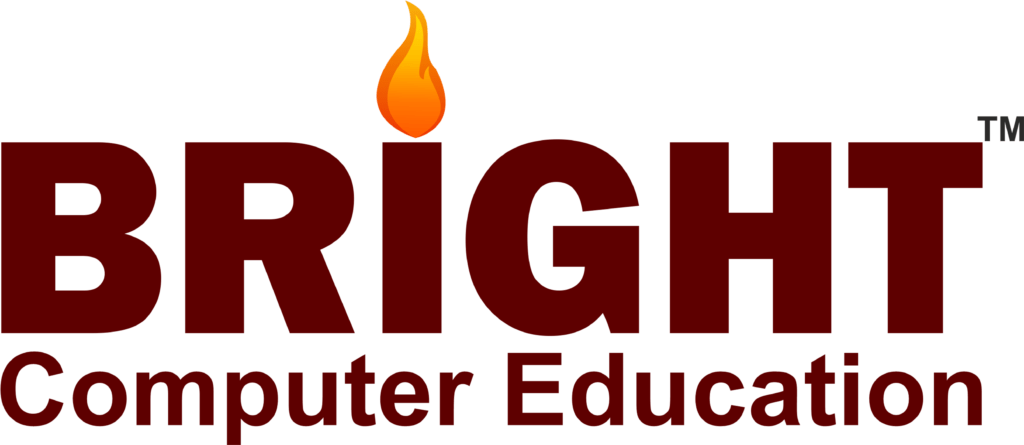Advanced Spoken English







Advanced Spoken English Course
The Advanced Spoken English Certification Course is ideal for individuals who already have a foundational understanding of English and are looking to enhance their fluency and communication skills. This course, considered among the best Advanced Spoken English training in Vadodara, follows a structured curriculum focused on refining grammar, broadening vocabulary, and improving conversational fluency in real-life scenarios.
Interactive assessments and personalized feedback ensure learners can track progress and focus on specific areas for growth. Whether you’re aiming to improve workplace communication or everyday conversation, this program stands out among Advanced Spoken English coaching classes in Vadodara, equipping you with the confidence and skills to speak English fluently and effectively.
What will I learn?
- Expand vocabulary and language proficiency to communicate effectively in English at the elementary level.
- Improve grammatical accuracy and fluency in spoken English.
- Enhance listening comprehension skills to understand spoken English in different contexts.
- Develop conversational skills to express opinions, share experiences, and engage in discussions.
- Prepare for everyday communication scenarios, including travel, work, and social interactions.
Requirements
- While no prior knowledge of English is required, participants should have a basic understanding of the English language, including familiarity with the English alphabet and some common words or phrases.
- Completion of a Spoken English A1 course or equivalent proficiency level.
Spoken English Course Content
- Advanced Vocabulary Expansion
- Learning advanced vocabulary relevant to academic, professional, and social contexts.
- Exploring synonyms, antonyms, idiomatic expressions, and phrasal verbs.
- Practice activities to integrate new vocabulary into spoken communication.
- Advanced Grammar Concepts
- Delving into complex grammatical structures and nuances.
- Mastery of advanced tenses, conditionals, reported speech, and subjunctive mood.
- Exercises focusing on accuracy, fluency, and natural usage in spoken English.
- Idiomatic Expressions and Colloquialism
- Understanding and using idiomatic expressions, slang, and colloquialisms in context.
- Exploring cultural nuances and idiomatic variations across English-speaking regions.
- Role-playing and scenario-based activities to practice using idioms effectively in conversation.
- Advanced Pronunciation and Accent Reductio
- Fine-tuning pronunciation of challenging sounds and intonation patterns.
- Strategies for reducing accents and achieving clearer, more neutral pronunciation.
- Phonetic exercises and drills tailored to address individual pronunciation difficulties.
- Advanced Listening Comprehension
- Exposing learners to a wide range of authentic spoken English materials, including lectures, debates, podcasts, and interviews.
- Developing advanced listening skills such as inference, prediction, and recognizing implied meaning.
- Activities to enhance listening speed, accuracy, and comprehension of complex spoken discourse.
- Advanced Speaking Strategies
- Developing advanced speaking strategies for formal presentations, debates, negotiations, and discussions.
- Enhancing persuasive speaking skills and rhetorical techniques for effective communication.
- Practicing spontaneous speech, thinking on one’s feet, and responding articulately to unexpected questions or challenges.
- Cultural Competence and Cross-Cultural Communication
- Exploring cultural differences in communication styles, norms, and values.
- Developing cultural awareness and sensitivity to navigate diverse cultural contexts.
- Role-playing and case studies to simulate cross-cultural communication scenarios and develop intercultural competence.
- Critical Thinking and Argumentation
- Fostering critical thinking skills through analysis, evaluation, and synthesis of complex ideas.
- Engaging in structured debates, persuasive arguments, and logical reasoning exercises.
- Constructing well-reasoned arguments and supporting them with evidence in spoken discourse.
- Advanced Conversation Skills
- Refining conversational skills for various contexts, including social gatherings, professional networking, and academic discussions.
- Practicing active listening, turn-taking, and paraphrasing to facilitate meaningful dialogue.
- Role-playing real-life scenarios to develop conversational fluency and adaptability.
- Public Speaking and Presentation Skills
- Mastering techniques for engaging and impactful public speaking.
- Planning and delivering persuasive presentations with clear organization and compelling delivery.
- Receiving constructive feedback and refining presentation skills through practice sessions and peer evaluations.
- Media Literacy and Digital Communication
- Analyzing and critiquing media messages, advertisements, and online content.
- Developing digital communication skills for effective online interactions, including email etiquette, online meetings, and social media communication.
- Understanding the role of technology in communication and its impact on language use and interpersonal relationships.
- Professional Development and Career Skills
- Enhancing English language skills for career advancement, job interviews, and workplace communication.
- Developing networking skills, negotiation tactics, and intercultural competence for professional success.
- Resume writing, cover letter preparation, and interview practice tailored to specific industries and job roles.
- Argumentative Essays:
- Assign topics that require students to take a clear position and support it with evidence and logical reasoning.
- Encourage students to incorporate counterarguments and refute opposing viewpoints.
- Provide feedback on the coherence of arguments, depth of analysis, and use of persuasive language.
- Advanced Grammar and Syntax
- Complex Sentence Construction: Practice writing sentences that include multiple clauses, varied sentence structures, and advanced punctuation.
- Grammar Refinement: Focus on advanced grammar rules, such as the use of subjunctive mood, correct use of colons and semicolons, and parallel structure.
- Style and Tone
- Style Imitation: Read a passage by a well-known author and then write a paragraph in the same style and tone.
- Tone Shifting: Write the same content in different tones (formal, informal, persuasive, descriptive, etc.) to understand how tone impacts writing.
- Argumentation and Persuasion
- Persuasive Essays: Write essays on controversial topics, presenting a clear thesis and supporting it with logical arguments and evidence.
- Counterarguments: Write a piece that presents an argument, then write a counterargument to the same piece to understand different perspectives.
- Research and Citation
- Annotated Bibliographies: Create annotated bibliographies for research papers, summarizing and evaluating each source.
- Incorporating Research: Practice integrating quotes, paraphrases, and summaries from sources into your writing smoothly and correctly.
- Creative Writing
- Character Development: Create detailed character profiles and write scenes that reveal character traits through actions, dialogue, and internal monologue.
- Narrative Techniques: Experiment with different narrative techniques such as flashbacks, unreliable narrators, and stream of consciousness.
- Genre-Specific Writing
- Professional Writing: Write various types of professional documents, such as emails, reports, proposals, and executive summaries.
- Academic Writing: Practice writing academic papers, including abstracts, literature reviews, methodology sections, and discussions.
- Debates on Complex Topics:
- Organize debates on intricate and controversial topics relevant to the learners’ interests or fields of study.
- Assign teams to argue for and against specific propositions, encouraging them to construct compelling arguments supported by evidence.
- Facilitate structured rebuttals and cross-examination rounds to foster critical thinking and persuasive speaking skills.
- Impromptu Speaking Challenges:
- Conduct impromptu speaking sessions where learners are given a short preparation time before delivering a speech or response.
- Provide random topics or discussion prompts and ask learners to present their viewpoints or arguments on the spot.
- Emphasize improvisation, clarity, and coherence in spontaneous speech delivery.
- TED-Style Talks:
- Assign learners to prepare and deliver TED-style talks on topics of personal expertise, passion, or interest.
- Encourage them to craft engaging narratives, convey complex ideas effectively, and incorporate multimedia elements if possible.
- Provide opportunities for peer feedback and refinement of presentation skills.
- Mock Job Interviews:
- Simulate mock job interviews tailored to learners’ career aspirations or professional backgrounds.
- Assign roles of interviewers and candidates, with interviewers asking challenging questions related to the job role or industry.
- Provide constructive feedback on interview performance, communication skills, and professionalism.
- Advanced Role-Playing Scenarios:
- Create role-playing scenarios based on real-life situations encountered in professional or academic settings.
- Assign learners roles such as managers, clients, or colleagues, and provide detailed background information and objectives for each role.
- Facilitate immersive role-playing sessions where learners must navigate complex interpersonal interactions and communication challenges.
- Elevator Pitch Practice:
- Task learners with crafting and delivering concise elevator pitches to promote an idea, product, or project.
- Set time limits for pitches (e.g., 30 seconds to 2 minutes) to encourage brevity and clarity.
- Encourage learners to focus on capturing the audience’s attention, highlighting key benefits, and compelling action.
- Storytelling Workshops:
- Conduct storytelling workshops where learners refine their narrative skills and storytelling techniques.
- Provide prompts or storytelling frameworks to guide learners in structuring their stories effectively.
- Facilitate peer storytelling circles where learners share and receive feedback on their storytelling performances.
- Panel Discussions and Roundtables:
- Organize panel discussions or roundtable sessions on multidisciplinary topics or current issues.
- Invite learners to participate as panelists, moderators, or audience members, fostering collaborative dialogue and exchange of ideas.
- Encourage active listening, respectful discourse, and contributions grounded in research and expertise.
- Advanced Pronunciation and Accent Reduction Drills:
- Incorporate advanced pronunciation exercises focusing on challenging phonemes, stress patterns, and intonation.
- Provide feedback on individual pronunciation difficulties and strategies for accent reduction.
- Offer opportunities for repeated practice and reinforcement of correct pronunciation habits.
- Multimedia Presentations and Webinars:
- Task learners with creating multimedia presentations or webinars on specialized topics within their fields of study or expertise.
- Encourage them to integrate visuals, audio, and interactive elements to enhance engagement and comprehension.
- Provide guidance on effective delivery techniques for online presentations, including pacing, eye contact, and audience interaction.
- Introduction to Business Communication:
- Overview of the importance of effective communication in business.
- Introduction to key concepts such as audience analysis, purpose, and context in business communication.
- Written Business Communication:
- Writing professional emails, memos, letters, and reports.
- Crafting clear and concise messages for different business purposes (e.g., requests, inquiries, proposals).
- Strategies for effective formatting, organization, and tone in written communication.
- Business Writing Skills:
- Developing strong writing skills, including grammar, punctuation, and style.
- Editing and proofreading techniques for polished written communication.
- Practice exercises and assignments to reinforce writing skills.
- Business Presentation Skills:
- Planning, designing, and delivering effective business presentations.
- Structuring presentations for clarity and impact (e.g., introduction, main points, conclusion).
- Techniques for engaging the audience, managing nerves, and handling questions.
- Interpersonal Communication in Business:
- Building rapport and relationships in professional settings.
- Active listening skills and empathetic communication.
- Strategies for effective verbal and nonverbal communication in meetings, negotiations, and networking events.
- Cross-Cultural Communication:
- Understanding cultural differences in communication styles and norms.
- Strategies for communicating respectfully and effectively in multicultural workplaces.
- Case studies and scenarios illustrating cross-cultural communication challenges and solutions.
- Business Etiquette and Professionalism:
- Etiquette guidelines for business interactions (e.g., greetings, introductions, etiquette in meetings).
- Professionalism in written and verbal communication, including tone, language, and demeanor.
- Addressing ethical considerations and maintaining professionalism in challenging situations.
- Team Communication and Collaboration:
- Communicating effectively in team environments, including virtual teams.
- Facilitating productive meetings, brainstorming sessions, and decision-making processes.
- Conflict resolution and negotiation skills for resolving interpersonal conflicts and reaching consensus.
- Business Communication Technologies:
- Overview of communication tools and technologies used in business settings (e.g., email, video conferencing, collaboration platforms).
- Best practices for using technology to enhance communication efficiency and effectiveness.
- Security and privacy considerations in digital communication.
- Business Writing for Specific Purposes:
- Writing business proposals, business plans, and project reports.
- Crafting persuasive marketing materials, including sales letters and advertisements.
- Drafting professional resumes, cover letters, and LinkedIn profiles.
- Business Communication Ethics and Social Responsibility:
- Ethical considerations in business communication, including honesty, transparency, and integrity.
- Corporate social responsibility and communicating organizational values to stakeholders.
- Case studies and discussions on ethical dilemmas in business communication.
- Business Communication Strategies and Crisis Communication:
- Developing effective communication strategies for crisis management and risk mitigation.
- Responding to crises with transparency, empathy, and accountability.
- Role-playing exercises and simulations to practice crisis communication scenarios.
- Business Communication Assessment and Feedback:
- Providing and receiving constructive feedback on written and verbal communication.
- Self-assessment tools and reflection exercises for continuous improvement.
- Assessing communication effectiveness using criteria such as clarity, persuasiveness, and professionalism.
- Capstone Project or Case Study Analysis:
- Applying business communication skills to real-world scenarios through a capstone project or case study analysis.
- Integrating knowledge and skills acquired throughout the course to address communication challenges in business contexts.
- Presenting findings and recommendations to peers or stakeholders.
- Introduction to Personality Development:
- Understanding the concept of personality and its components.
- Exploring the importance of self-awareness, self-esteem, and self-confidence in personal development.
- Self-Discovery and Assessment:
- Assessing personal strengths, weaknesses, values, and interests.
- Identifying personality traits, behavioral patterns, and communication styles.
- Utilizing self-assessment tools such as personality tests, strengths assessments, and emotional intelligence assessments.
- Goal Setting and Planning:
- Setting SMART (Specific, Measurable, Achievable, Relevant, Time-bound) goals for personal and professional growth.
- Developing action plans and strategies to achieve goals effectively.
- Prioritizing tasks and managing time to maximize productivity and success.
- Self-Confidence and Assertiveness:
- Building self-confidence and overcoming self-doubt and limiting beliefs.
- Assertiveness training to express thoughts, feelings, and opinions confidently and respectfully.
- Techniques for handling criticism, rejection, and dealing with difficult situations assertively.
- Effective Communication Skills:
- Developing verbal and nonverbal communication skills for clear and effective communication.
- Active listening techniques to enhance understanding and rapport in interpersonal interactions.
- Public speaking and presentation skills for confident and persuasive communication.
- Interpersonal Relationships and Networking:
- Building and maintaining healthy relationships in personal and professional contexts.
- Conflict resolution and negotiation skills for managing interpersonal conflicts constructively.
- Networking strategies for expanding social and professional connections and building a support system.
- Emotional Intelligence (EQ) Development:
- Understanding emotions, managing stress, and cultivating resilience.
- Developing empathy, compassion, and interpersonal skills for better relationships.
- Practicing emotional regulation and self-awareness to navigate challenging situations effectively.
- Positive Thinking and Mindset:
- Cultivating a positive mindset and reframing negative thoughts and beliefs.
- Practicing gratitude, optimism, and resilience in the face of adversity.
- Strategies for overcoming procrastination, self-sabotage, and fear of failure.
- Personal Branding and Image Management:
- Crafting a personal brand identity based on values, strengths, and aspirations.
- Enhancing professional image and presence through appearance, behavior, and online presence.
- Leveraging personal branding for career advancement, networking, and personal growth.
- Stress Management and Well-being:
- Techniques for managing stress, maintaining work-life balance, and promoting well-being.
- Mindfulness practices, relaxation techniques, and self-care strategies for physical and mental health.
- Setting boundaries, practicing self-compassion, and prioritizing self-care to prevent burnout.
- Leadership and Teamwork Skills:
- Developing leadership qualities such as vision, decision-making, and accountability.
- Team building and collaboration skills for effective teamwork and synergy.
- Leading by example, motivating others, and inspiring positive change in personal and professional settings.
- Ethics and Values-Based Leadership:
- Exploring ethical principles, integrity, and values-based decision-making.
- Understanding the importance of ethical leadership in building trust and credibility.
- Case studies and discussions on ethical dilemmas and responsible leadership practices.
- Continuous Learning and Personal Growth:
- Cultivating a growth mindset and embracing lifelong learning.
- Seeking feedback, learning from failures, and adapting to change.
- Creating a personal development plan for ongoing growth and self-improvement.
- Capstone Project or Personal Development Plan:
- Applying concepts and skills learned throughout the course to create a personal development plan.
- Setting specific goals, action steps, and timelines for achieving personal and professional aspirations.
- Reflecting on progress, celebrating achievements, and revising the plan as needed for continuous improvement.
- Introduction to Interviewing
- Understanding the Interview Process
- Types of interviews (e.g., behavioral, technical, panel)
- Importance of preparation and research
- Preparing for Success
- Researching the Company
- Identifying company values, culture, and recent news
- Tailoring your responses to align with company goals
- Understanding the Job Role
- Analyzing job descriptions and requirements
- Matching your skills and experiences to the role
- Mastering Common Interview Questions
- Introduction Questions
- Crafting an effective “Tell me about yourself” response
- Discussing your career goals and motivations
- Behavioral Questions
- Using the STAR method (Situation, Task, Action, Result)
- Preparing examples that demonstrate relevant skills
- Technical Questions (if applicable)
- Reviewing technical knowledge and problem-solving scenarios
- Demonstrating expertise and practical experience
- Developing Communication Skills
- Verbal Communication
- Improving clarity, articulation, and fluency
- Using appropriate vocabulary and tone
- Non-verbal Communication
- Mastering body language, eye contact, and posture
- Enhancing overall presence and confidence
- Handling Difficult Situations
- Dealing with Stress and Nerves
- Techniques for managing interview anxiety
- Maintaining composure under pressure
- Answering Challenging Questions
- Strategies for addressing weaknesses or gaps in experience
- Turning negatives into positives
- Post-Interview Strategies
- Following Up After the Interview
- Crafting a thank-you email or note
- Reinforcing your interest and qualifications
- Reflecting on Feedback
- Analyzing interview performance and areas for improvement
- Incorporating feedback into future interview strategies
- Advanced Techniques
- Storytelling in Interviews
- Developing engaging narratives about your achievements
- Capturing interviewer interest through storytelling
- Negotiation Skills (optional)
- Understanding salary negotiation tactics
- Articulating your value proposition effectively
- Cultural Sensitivity and Diversity
- Navigating Cultural Differences
- Recognizing and respecting cultural nuances in interviews
- Building rapport with diverse interviewers and teams
- Mock Interviews and Practice Sessions
- Mock Interview Exercises
- Simulating different interview scenarios
- Receiving constructive feedback from peers or mentors
- Continuous Improvement
- Professional Development Resources
- Recommended books, courses, and online resources
- Creating a personal development plan for ongoing growth
- Additional Resources
- Case Studies and Examples
- Real-life examples of successful interview strategies
- Analysis of interview techniques used by industry leaders
Get in touch
400+ Global Employment Partners








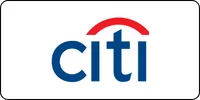










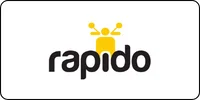



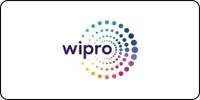



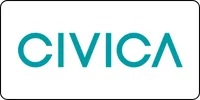











Why Choose Advanced Spoken English Certification Course from Bright Computer Education?
Advanced Spoken English skills are crucial for career growth and confident communication. Whether you’re aiming to Learn Advanced Spoken English in Vadodara, just starting with Advanced Spoken English for beginners in Vadodara, or seeking to perfect your fluency through Expert-level Spoken English training in Vadodara, this course offers practical, immersive learning tailored to your needs.

Designed Curriculum
Our curriculum covers everything from basic to advanced topics. Topics include variables, data types, control structures, functions, OOP, STL, and more.

Hands-on Learning
Dive into practical exercises and coding projects that reinforce learning and help you build real-world applications.

Experienced Instructors
Learn from industry experts with years of experience in C programming and software development.
Flexible Learning
Choose from flexible scheduling options, including self-paced learning or live virtual classes to fit your busy lifestyle.
Career Development
Gain valuable skills sought after by employers in various industries, from software development to embedded systems and beyond.
Interactive Learning
Engage with fellow learners and instructors through live Q&A sessions, discussion forums, and collaborative coding exercises.
Diverse Career Opportunities in Advanced Spoken English Certification Program: Exploring Paths in India's Technology Sector
An Advanced Spoken English course equips learners with high-level communication skills, including fluency, accent neutralization, public speaking, business communication, and interpersonal skills. This level of proficiency is essential in today’s global work environment and greatly enhances career opportunities across sectors.
In India, advanced English speakers are in high demand in corporate roles, BPOs, media, aviation, hospitality, education, marketing, and IT industries. Professionals with strong command of English often take up roles such as trainers, content writers, customer relationship managers, or corporate communicators, earning competitive salaries that start from ₹5–10 LPA and grow with experience.
Internationally, advanced English proficiency is a core requirement for working in English-speaking countries such as the USA, UK, Canada, and Australia, and also for study-abroad programs, multinational companies, and global consulting firms. It opens doors to better job prospects, higher education opportunities, and leadership roles abroad.
